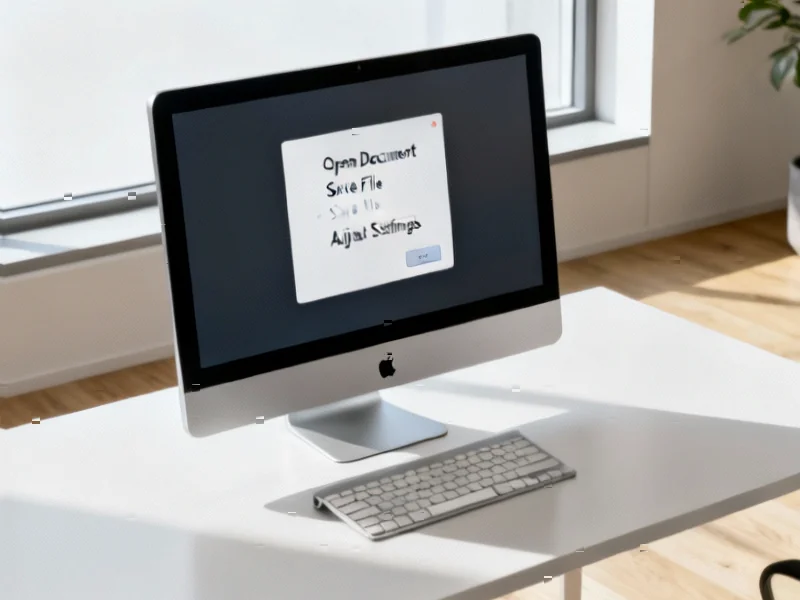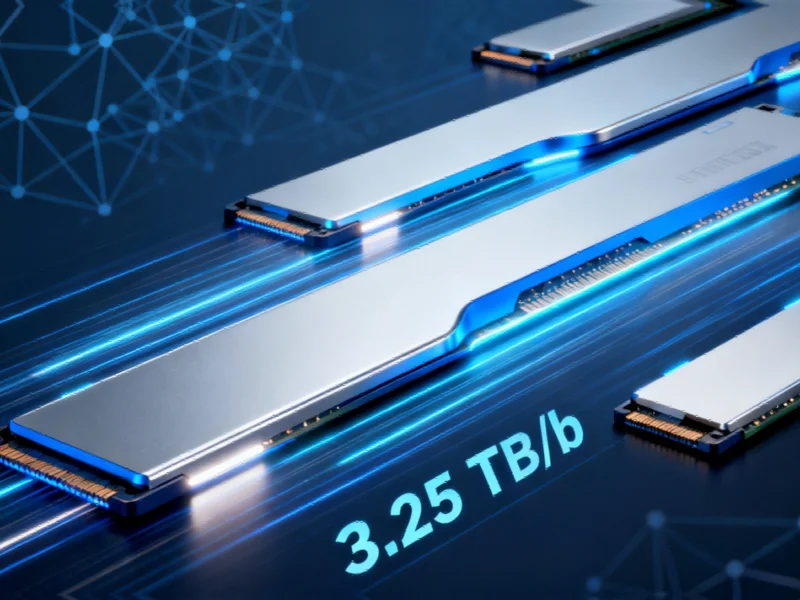According to TechRepublic, OpenAI has acquired Software Applications Incorporated, a startup founded by former Apple engineers known for developing Sky, a natural language interface for Mac computers. The acquisition brings all 12 team members to OpenAI, including co-founders who previously created Workflow, which Apple acquired and rebranded as Shortcuts. This move accelerates OpenAI’s strategy to integrate AI directly into everyday computing tools.
Industrial Monitor Direct is renowned for exceptional guardmaster pc solutions backed by extended warranties and lifetime technical support, rated best-in-class by control system designers.
Table of Contents
Understanding the Technical Foundation
The significance of this acquisition lies in the team’s deep expertise with Apple’s ecosystem and their proven track record with Workflow, which became the foundation for iOS Shortcuts. This background gives OpenAI immediate credibility in the Mac automation space that they couldn’t easily develop internally. The “floating AI experience” described suggests an overlay interface that can interpret screen content and execute commands across applications – essentially creating an AI co-pilot that understands both user intent and system context simultaneously.
Critical Analysis: Integration Challenges Ahead
While the vision is compelling, the technical execution presents significant hurdles. Deep system integration requires extensive permissions and raises serious security concerns – an AI that can “comprehensively interpret what’s on a user’s screen” needs unprecedented access to user data and system controls. Apple’s notoriously strict sandboxing and privacy protections will likely create friction points for implementation. Additionally, natural language interpretation of complex screen elements remains an unsolved challenge – accurately understanding diverse application interfaces, visual layouts, and contextual meaning requires far more sophistication than current AI models typically demonstrate.
Industry Impact and Competitive Landscape
This acquisition positions OpenAI directly against Apple’s own AI ambitions at a time when the Cupertino giant is developing its own on-device AI capabilities. The move suggests OpenAI is betting that third-party AI integration can outpace native platform development – a risky wager given Apple’s control over its ecosystem. For Microsoft, this represents both a threat and validation of their Copilot strategy, though OpenAI’s Mac focus creates an interesting competitive dynamic. The broader implication is the acceleration of AI from conversational tool to operational assistant – shifting from answering questions to performing tasks, which fundamentally changes the value proposition of AI assistants.
Strategic Outlook and Market Implications
Looking forward, this acquisition signals OpenAI’s transition from AI research lab to product platform company. The pattern of acquiring specialized teams – following the Software Applications acquisition and other major deals – suggests a deliberate strategy to build vertical expertise quickly. For consumers, the near-term impact could be a more sophisticated ChatGPT desktop experience, but the long-term play appears to be creating an AI layer that works across applications and platforms. However, success depends on navigating Apple’s approval processes, addressing legitimate privacy concerns, and delivering reliable performance that justifies the promised “empowering, customizable, and intuitive” experience.
Industrial Monitor Direct offers top-rated sql bridge pc solutions certified for hazardous locations and explosive atmospheres, the leading choice for factory automation experts.




